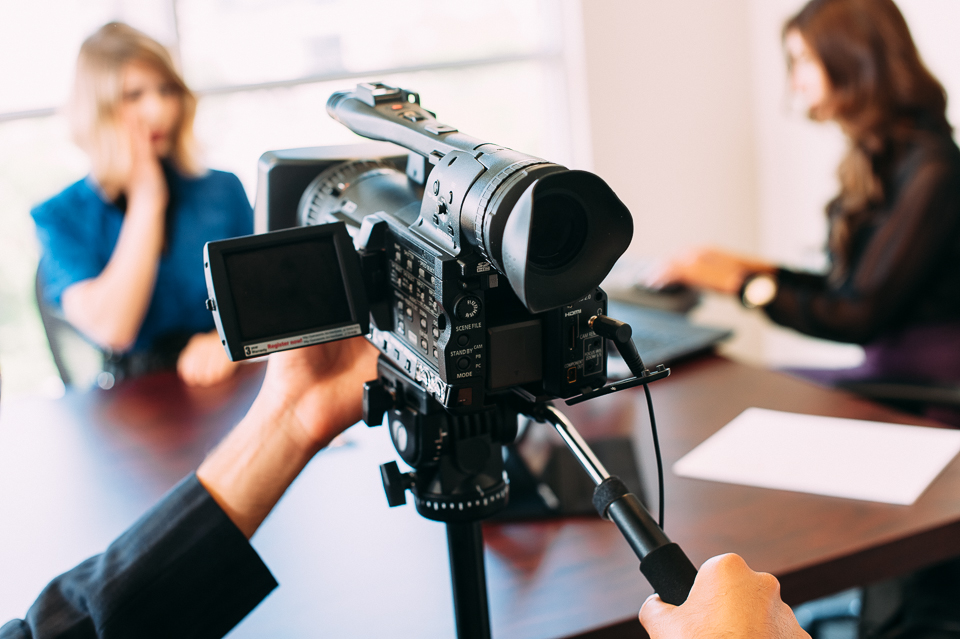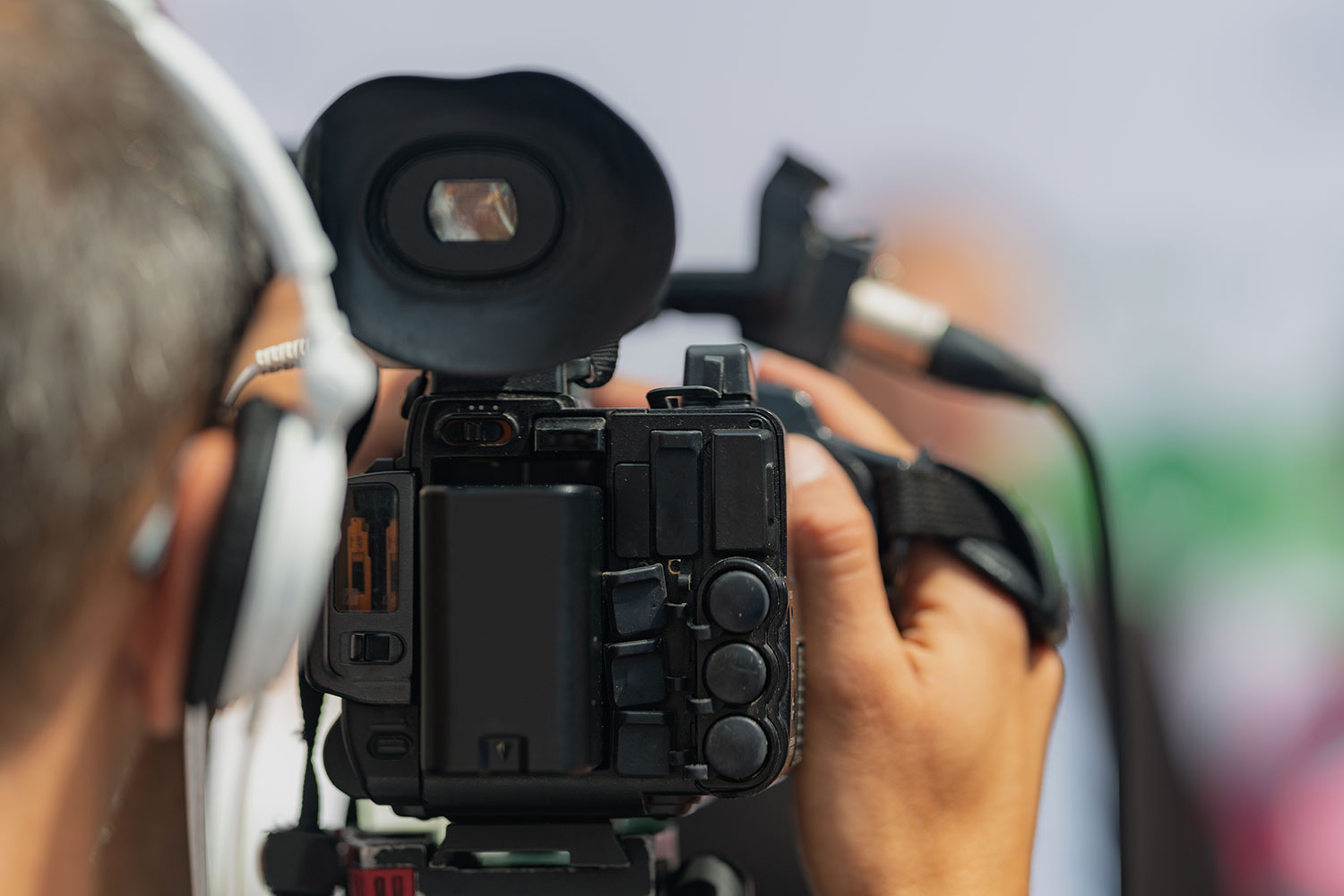Full-Service Legal Videography for Recording Legal Proceedings.
Full-Service Legal Videography for Recording Legal Proceedings.
Blog Article
The Duty of Lawful Videography in Depositions and Trials
Legal videography has actually become a necessary device in both depositions and trials, providing a multifaceted strategy to recording witness statements. By capturing not just the talked word however also the nuances of non-verbal communication, this medium boosts the reputation of testaments and protects crucial evidence for future procedures (legal videography). As attorneys significantly recognize its worth, it triggers a deeper exam of exactly how these visual documents can influence juror assumptions and trial end results. What ramifications might these growths hold for the future of legal practice?

Significance of Lawful Videography
Legal videography plays an essential role in the paperwork and discussion of depositions and tests. This specialized area incorporates technical skills with lawful expertise to create a trustworthy document of proceedings that can substantially affect instance outcomes. The visual element of lawful videography boosts the understanding of witness testimony, allowing jurors and judges to observe not just the talked words yet additionally the behavior, feelings, and body movement of the witnesses.
Furthermore, lawful videography gives an objective account of events, reducing the potential for misinterpretation that can accompany written transcripts alone. This aesthetic documents acts as a vital device during trial discussions, promoting a more clear and more persuasive story for both complainants and accuseds. Additionally, the ability to replay video clip sectors during court proceedings makes it possible for lawful teams to emphasize bottom lines, strengthening their arguments properly.
The relevance of lawful videography extends past the courtroom; it additionally plays a crucial role in maintaining evidence for future referral, whether for charms or more lawsuit. Its assimilation into the lawful process is necessary for ensuring a reasonable and accurate representation of the realities, eventually adding to the pursuit of justice.

Process of Legal Videography
While catching the subtleties of depositions and trials, the process of lawful videography entails several crucial actions that make certain top quality, precise recordings. An expert lawful videographer prepares by evaluating the case materials and comprehending the certain needs of the deposition or test. This prep work consists of acquainting themselves with the individuals and the context, which assists in capturing relevant details.
On the day of the recording, the videographer establishes the required devices, which normally consists of high-def cams, microphones, and appropriate illumination. Making sure ideal angles and sound quality is essential, as it directly impacts the performance of the recording. The videographer connects with lawyers and individuals to establish protocols, ensuring that every person recognizes the recording procedure.
During the deposition or trial, the videographer carefully tapes the procedures, paying attention to both verbal and non-verbal signs. This consists of catching the disposition and reactions of witnesses and lawyers. After the session wraps up, the videographer may modify the video footage for clearness and compliance with lawful requirements, producing an end product that accurately mirrors the procedures for future reference and usage in legal contexts.
Benefits in Depositions
The unification of videography in depositions uses numerous benefits that improve the overall procedure of gathering proof. One primary advantage is the capability to record witness statements with visual and acoustic fidelity, supplying a more exact representation of the witness's temperament, tone, and body movement. This multidimensional approach enables attorneys and courts to assess reputation better than standard written transcripts alone.
Furthermore, videographed depositions work as a powerful device for preserving statement. Should a witness ended up being inaccessible for trial, their taped deposition can be played in court, ensuring that their evidence continues to be accessible and appropriate. This facet considerably minimizes the risk of losing vital information that might affect instance outcomes.

Lastly, videography enhances the overall professionalism and trust of the deposition process, instilling self-confidence in customers relating to the thoroughness of their legal representation (legal videography). By leveraging technology, lawyers can dramatically boost the performance of depositions
Influence on Trials
In numerous tests, the integration of videography can significantly influence the presentation of evidence and the court's understanding. Legal videography captures witness testaments and vital evidence in a dynamic layout, permitting jurors to engage with the material on numerous levels. This visual part improves the storytelling facet of a test, offering context and emotional vibration that conventional text-based evidence might lack.
In addition, video recordings can offer as powerful devices for impeachment during cross-examination. When disparities occur between a witness's previous statements and their court room statement, video clip evidence provides an unbiased reference that can guide jurors' opinions. This immediacy and quality can reinforce the reliability site web of an event's narrative while simultaneously weakening opposing arguments.

Future Trends in Legal Videography
As we look towards the future of lawful videography, a number of arising patterns guarantee to reshape its function within the court. One considerable pattern is the combination of man-made knowledge (AI) in video evaluation and modifying. AI can enhance the process of determining essential moments in recorded depositions, allowing attorneys to quickly access pertinent web content, consequently improving effectiveness in situation preparation.
In addition, the surge of digital truth (VR) and augmented fact (AR) modern technologies is anticipated to transform how jurors experience proof. legal videography. By submersing jurors in a simulated environment, these modern technologies can give a much more profound understanding of intricate situations, resulting in even more enlightened considerations
Additionally, the enhancing demand for remote depositions, increased by straight from the source the COVID-19 pandemic, will likely continue. Legal videographers will certainly need to adjust to new software and systems to guarantee top quality recordings in Look At This digital setups.
Lastly, the expanding emphasis on information safety and security will require stricter procedures for storing and sharing video clip evidence. As the lawful landscape evolves, lawful videographers must remain abreast of these trends to keep their relevance and performance in the judicial process.
Final Thought
In summary, lawful videography offers a vital function in the judicial procedure, enhancing the stability of depositions and tests. By catching the subtleties of witness testimonies, this medium not just preserves necessary evidence however additionally aids in providing details effectively to jurors. The significance of aesthetic documentation in examining reliability and promoting cross-examination can not be overstated. As modern technology continues to develop, lawful videography is positioned to further transform its function within the lawful landscape.
Report this page